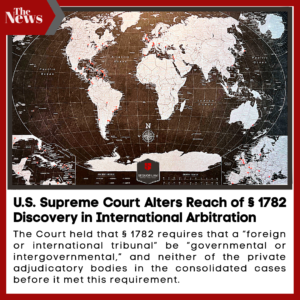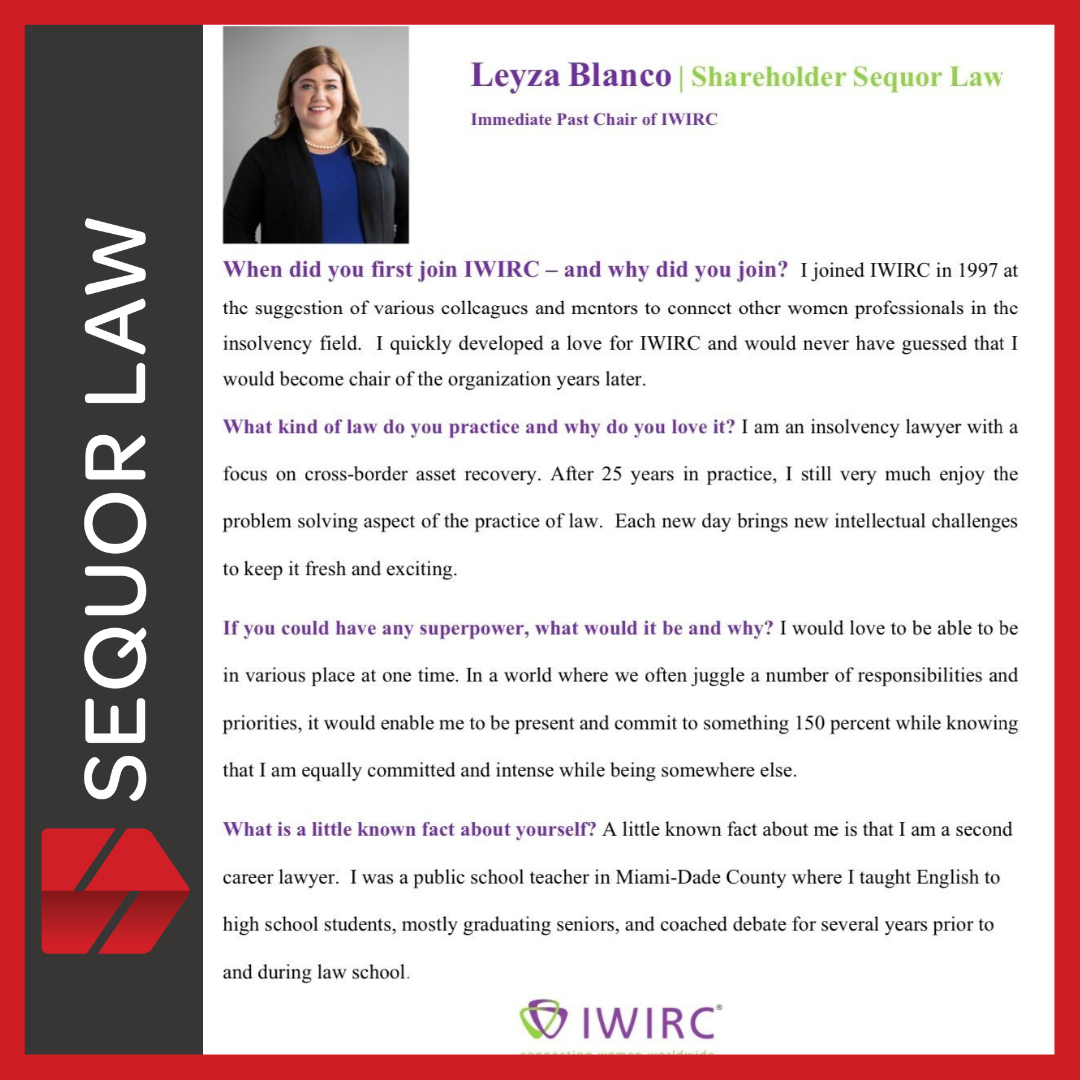
In a unanimous decision, the U.S. Supreme Court held that two arbitration tribunals—one private and one investor-state—did not constitute “foreign or international tribunal[s]” under 28 U.S.C. § 1782. The statute is widely used by litigants to obtain discovery “for use in a proceeding in a foreign or international tribunal.” The decision came after years with a split among the Courts of Appeals on the issue, particularly in the area of international private arbitration.
In its 17-page decision, the Court analyzed the language of the statute and its history noting that § 1782’s purpose is comity. The Court reasoned that a broad reading of §1782 “would open district court doors to any interested person seeking assistance for proceedings before any private adjudicative body—a category broad enough to include everything from a commercial arbitration panel to a university’s student disciplinary tribunal.” Opting for a narrower construction, the Court held that “only governmental or intergovernmental adjudicative bodies constitute a ‘foreign or international tribunal’ under § 1782”, adding that, “[s]uch bodies are those that exercise governmental authority conferred by one nation or multiple nations.”
More on the decision can be found here.






Sequor Law es una firma internacional de abogados que representa instituciones financieras, gobiernos soberanos, empresas estatales, empresas públicas y privadas, profesionales de insolvencia y clientes individuales en las áreas de recuperación de activos, fraude financiero, insolvencia y litigios de servicios financieros.